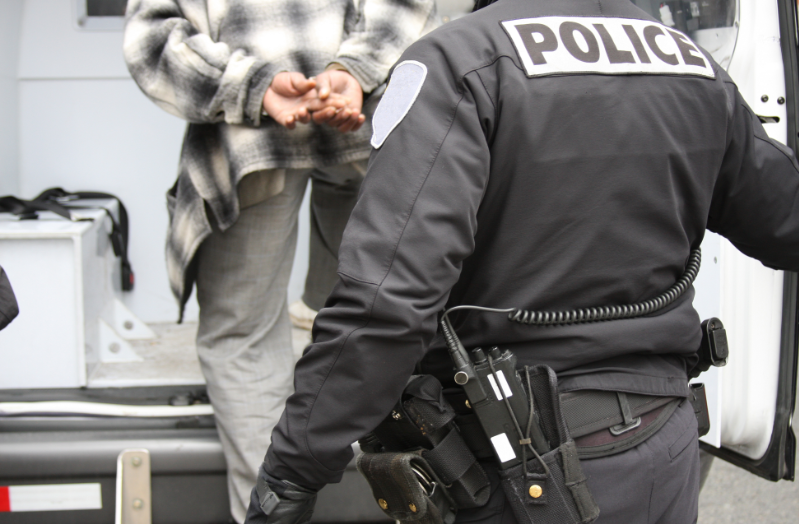You will be confused when released from jail without paying the bail money. The natural question follows: "Who posted bail for me?" Knowing the source of the bail funds can be crucial for various reasons. It allows you to express gratitude and acknowledgment to the person who bailed you out. You also get to know if conditions or expectations are tied to the bail agreement.
Whether you're a friend, family member, or just curious about the process, this guide will walk you through the steps to find out who posted bail for you or a loved one.
Contact the Detention Center or Jail
You can begin by contacting the detention center. Ensure you know the detained individual's full name and booking number. These specifics will enable the facility to find the relevant records swiftly. From there, take the time to identify the correct facility or jail. San Diego County has multiple detention facilities, each serving different purposes.
Proceed to find the main information line that serves as the primary point of contact for inquiries. This number is often available on the facility's official website or can be obtained through directory assistance. Remember, you must verify your identity and relationship with the person.
Here is a list of various detention centers and jails in San Diego and their contact information:
San Diego Central Jail:
Address: 1173 Front St, San Diego, CA 92101
Main Phone: (619) 610-1647
Website: San Diego Central Jail
Vista Detention Facility:
Address: 325 S Melrose Dr, Vista, CA 92081
Main Phone: (760) 936-0014
Website: Vista Detention Facility
George Bailey Detention Facility:
Address: 446 Alta Rd, San Diego, CA 92158
Main Phone: (619) 210-0385
Website: George Bailey Detention Facility
East Mesa Reentry Facility:
Address: 446 Alta Rd, San Diego, CA 92158
Main Phone: (619) 210-0385
Website: East Mesa Reentry Facility
South Bay Detention Facility:
Address: 500 3rd Ave, Chula Vista, CA 91910
Main Phone: (619) 213-1433
Website: South Bay Detention Facility
Access Online Inmate Information
Many detention centers and jails in San Diego provide online databases with inmate information, including details about their release and bail. Check the official website of the relevant facility and search for an inmate locator or similar tool. Typically, the inmate locator tool will prompt you to enter specific details.
Once you've entered the necessary information, the system will generate results related to the individual. Look for details about their release, including bail information. This may include the name of the person who posted bail. Contact the facility directly for more comprehensive information if you encounter any restrictions.
Remember to use the individual's complete and accurate name for more accuracy. You can also provide additional details. Check the last update date on the website to ensure that you are accessing the most recent information.
Visit the Courthouse
If the detention center doesn't provide the information you need, consider visiting the Vista courthouse where the case is being heard. Court records often include details about bail. Remember that accessing court records may have specific procedures, and you might need to visit the clerk's office. But before that, check if the courthouse has clear guidelines for accessing court records. This information is often available on the courthouse's official website. Note any requirements or restrictions, such as identification or specific hours of operation.
Head to the Clerk's Office
The clerk is the custodian of court records and can guide you in accessing the information you seek. The office is typically near the entrance or designated records area. Courthouses prioritize the security and confidentiality of legal records. Expect to verify your identity and, if applicable, your relationship to the person involved in the case. This may include presenting identification or providing specific details for confirmation.
Once granted access, review the court records associated with the case. Look for details about the bail arrangement, including the name of the individual who posted bail. Take note of any conditions or terms related to the bail agreement.
Consult with an Attorney
In some cases, legal professionals may have access to information about bail postings. If you have an attorney representing the person in question, consult with them. Attorneys can often access relevant court records and provide insights into who facilitated the bail.
Clearly articulate your interest in understanding the specifics of the bail posting, including the identity of the person who facilitated it. Attorneys are often privy to case details and may have insights into the source of the bail funds. Also, share the context behind your inquiry and the purpose for seeking this information.
Check Public Records
In some jurisdictions, certain aspects of court records, including bail information, may be accessible to the public. Check online public records or visit the courthouse to inquire about the possibility of obtaining this information. It's important to point out that legal regulations regarding public access to court records vary by jurisdiction. Learn about the laws governing public records in the area where the case is being heard.
Many jurisdictions now offer online platforms for accessing public records. Check the official website of the courthouse or the local government for an online portal that allows you to search for court records related to the case.
Check with Law Enforcement
The law enforcement agencies handling the arrest might have the necessary information. Find their contact details before you get started. It is often available on their official website or through directory services. Be polite and provide relevant details about the case when you call. Explain that you seek information about the person's release and who posted bail.
Ensure you have accurate information about the person in custody. Provide the case number associated with the arrest during your inquiry. Remember to be respectful and maintain a courteous tone during your conversation. Law enforcement officials are more likely to assist when approached with politeness and patience.
Use Bail Bondsman Services
A bail bondsman can provide information about who secured the bail bond. Bail bondsmen are typically aware of the details surrounding the bail transaction, including the identity of the person responsible for the bond. Bail bond agents provide a bail bond if you can't raise the bail amount at a fee. This is usually a percentage of the total bail amount.
If you know that a bond dealer was part of the release process, take note of their contact information. This may be available on official documents related to the bail transaction or through the released individual.
Reach out to the bail bondsman directly to inquire about the details of the bail transaction, explicitly focusing on who secured the bail bond. Bail bondsmen are often willing to provide information about the individual responsible for the bond.
Let Golden Boy Bail Bonds Help You
Finding out who posted bail can be challenging. You don't have to do it on your own. Choosing the #1 bail bond agent in San Diego will make the process seamless and quick. Golden Boy Bail Bonds brings a wealth of expertise in the bail bond process. With a team of experienced professionals, they understand the San Diego legal system and can guide you through the steps to uncover the details of the bail transaction.
Here is what to expect from Golden Boy Bail Bonds:
A team of experienced professionals
Access the support you need promptly
A transparent and honest approach
Commitment to professionalism and integrity
The team prioritizes efficient and clear communication
Personalized and supportive service to every client
Golden Boy Bail Bonds is dedicated to guiding clients through bail bond complexities
Contact the experienced and dedicated bail bond agents at Golden Boy Bail Bonds today to navigate the complexities of the legal system.














































